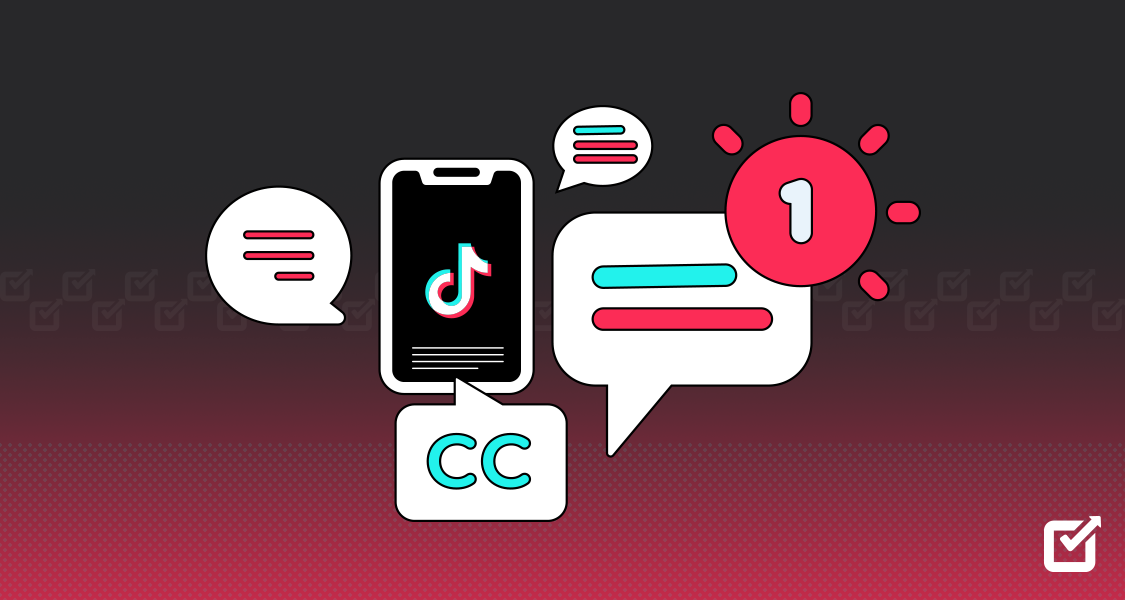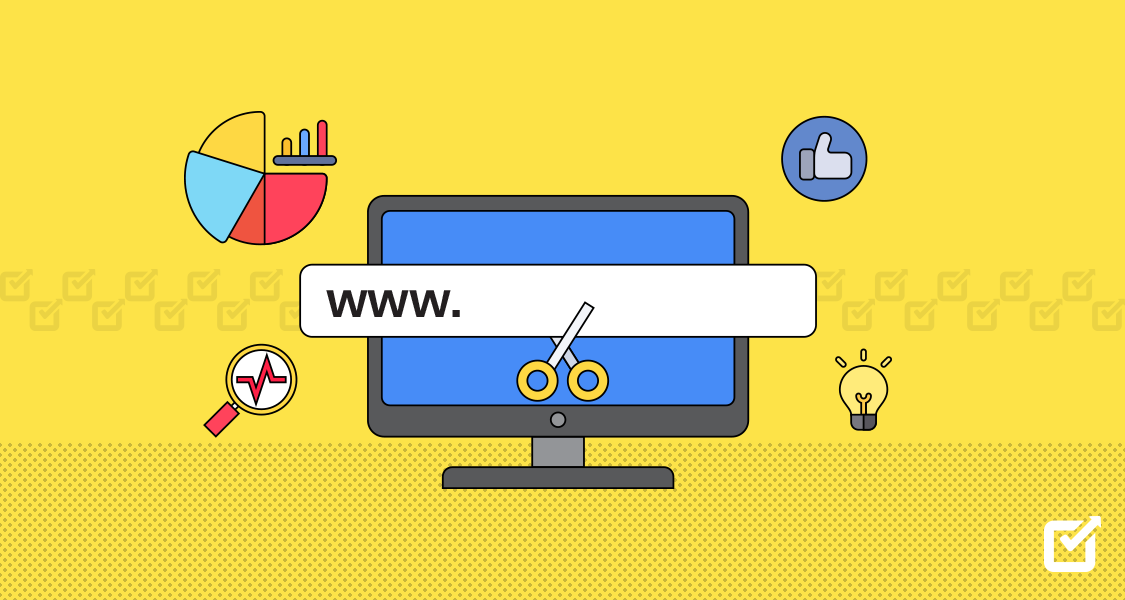Gone are the days of guesswork—now it’s all about data-driven strategies.
But with so many tools out there, it can be tough to know where to start.
Don’t worry; we’ve got you covered!
In this guide, we’ll dive into the top market intelligence tools for 2024, breaking down what they do, how they can boost your business, and why they’re essential for staying ahead in today’s ever-evolving market.
Ready to level up your strategy? Let’s get started!

Why leave your success to chance? Use Social Champ’s data-driven insights to refine your strategies and outsmart the competition!
Short Summary
- Explore the top market intelligence tools in 2024 designed to help businesses gather data, analyze trends, and track competitors.
- Social Champ allows you to manage and analyze social media performance with ease.
- Klue helps to track competitors and make strategic decisions based on real-time insights.
- Semrush enables users to optimize their SEO and online visibility with powerful digital marketing tools.
- Similarweb analyzes website traffic and benchmarks against competitors.
- Contify helps aggregate data from multiple sources for comprehensive market insights.
- Sprout Social lets you manage and enhance your social media presence with in-depth analytics.
- Visualping monitors website changes for competitive intelligence.
- Kompyte helps you to automate competitor tracking and analyze their strategies.
- Talkwalker allows you to utilize social listening to gain insights into customer sentiment and brand reputation.
- Leverage these tools to make data-driven decisions, enhance marketing efforts, and stay ahead of the competition.
What’s the Purpose of Market Intelligence Tools?
Market intelligence tools help businesses gather, organize, and analyze data about their industry, competitors, and consumers.
The primary purpose of these tools is to equip businesses with actionable insights, enabling them to:
- Identify Market Trends: Stay ahead by identifying shifts in customer preferences, market conditions, and emerging trends.
- Analyze Competitors: Understand what your competitors are doing—whether they are launching new products, changing their pricing strategy, or increasing their market share.
- Forecast Future Opportunities and Threats: By accessing real-time data, businesses can anticipate potential challenges and seize new opportunities as they arise.
- Improve Decision-Making: Data-driven insights allow businesses to make informed, strategic decisions more likely to yield positive outcomes.
Market intelligence tools are not just about gathering information but about transforming data into insights that can drive meaningful action.
These tools are invaluable in helping businesses leverage opportunities and mitigate risks, thus strengthening their market position.
Featured Article: AI & E-Commerce: Trends and Successful Implementations by Industry Leaders
Top Market Intelligence Tools to Enhance Your Strategy
There are numerous market intelligence tools examples available in 2024, each designed to meet different business needs.
Whether you’re looking to improve your SEO, analyze competitors, or manage your social media strategy, the following market intelligence tools will give you the insights you need.
Social Champ

Social Champ’s Dashboard Social Champ is a robust tool designed to smooth out social media management while providing market intelligence insights.
It enables users to schedule posts, automate tasks, and analyze performance across various social media platforms.
For businesses that rely heavily on effective social media marketing, Social Champ is a vital tool for social media marketing plans, monitoring industry trends, tracking competitors, and analyzing audience behavior.
Key Features:
- Post Scheduling: Schedule posts in advance across multiple platforms, ensuring consistent visibility.
- Analytics and Reporting: Gain insights into engagement, reach, and follower growth to fine-tune your social media strategies.
- Content Curation: Discover and curate content that resonates with your audience and stay updated on industry trends.
- Team Collaboration: Facilitate easy collaboration between team members by assigning tasks, reviewing posts, and managing campaigns.
Pros:
- Easy to use for social media management.
- Comprehensive analytics to guide strategy.
- Excellent for small and large businesses alike.
Cons:
- Some integrations, such as Pinterest and X, are not available in the Free Plan.
Why Choose Social Champ?
- Affordable Pricing: Plans start as low as $26/month.
- Free Trial: Test all features with a 14-day free trial—no credit card required.
- Scalable: Suitable for businesses of all sizes, from individuals to large agencies.
- Comprehensive Features: Post scheduling, analytics, content curation, and team collaboration in one easy-to-use tool.
Klue

Klue’s Landing Page social media marketing plans is a market-leading competitive intelligence platform that allows businesses to track their competitors’ activities, gather data, and gain valuable insights.
It pulls real-time data from various sources to help businesses monitor and respond to competitor moves.
Key Features:
- Real-Time Competitive Tracking: Get updates on competitor product launches, pricing changes, and marketing strategies.
- Battlecards: A unique feature that provides sales teams with competitive intelligence to help them close deals more effectively.
- Collaboration Tools: Share competitive insights across departments and teams.
Pricing:
Klue operates on a subscription-based pricing model, starting at $10,000 annually.
Given its extensive feature set and the value it delivers, it’s an investment tailored for businesses serious about staying competitive.
Pros:
- Ideal for tracking competitors and making strategic decisions.
- Simple to use with customizable dashboards.
Cons:
- Best suited for larger businesses due to cost.
Semrush

Semrush’s Dashboard Semrush is an all-in-one digital marketing tool offering a comprehensive SEO tool suite.
From keyword research and site audits to rank tracking and competitor analysis, Semrush is essential for businesses looking to improve their online visibility and outshine competitors.
Key Features:
- Keyword Research: Find high-traffic keywords to boost your SEO rankings.
- Competitor Analysis: Analyze competitors’ SEO strategies, backlinks, and keyword rankings.
- Site Audits: Identify technical issues on your website and get actionable advice on how to fix them.
- Rank Tracking: Track your website’s rankings over time for selected keywords.
Pricing:
Semrush offers pricing plans starting at $139.95 monthly, with a 7-day free trial available for new users.
While the tool is packed with features, the pricing reflects its value as one of the most comprehensive SEO platforms available.
Pros:
- One of the most comprehensive SEO tools on the market.
- Detailed competitor analysis to improve digital marketing strategies.
Cons:
- High learning curve for beginners.
- Expensive for small businesses or solo entrepreneurs.
Featured Article: Schedule Social Media Posts in 2024: Benefits, Tips & Tools

Plan Your Path to Grow!
Start scheduling today with Social Champ and grow your business effectively.
Similarweb

Similarweb’s Landing Page Similarweb is a powerful tool for analyzing website traffic and performance metrics.
By providing data on website visits, engagement metrics, and traffic sources, Similarweb helps businesses understand their online presence and how it compares to competitors.
It is also one of the popular market intelligence tools for students thanks to its free version called freemium.
Key Features:
- Traffic Insights: Track where your website traffic is coming from (organic, paid, social, etc.).
- Competitor Analysis: Compare your site’s performance with that of your competitors.
- Audience Demographics: Get detailed insights into your audience’s demographics, interests, and online behaviors.
Pricing:
- Free Version (Freemium): Similarweb offers a free version, making it accessible to students and individuals looking for basic market intelligence and traffic analysis.
- Premium Plans: For businesses needing more advanced features, premium plans start at $125 per month, offering more in-depth data and competitor analysis tools.
Pros:
- Excellent for website traffic analysis.
- Provides insights into competitor traffic and market positioning.
Cons:
- Limited features in the free version.
- Premium versions can be costly for smaller businesses.
Contify

Contify’s Dashboard Contify aggregates data from various sources to provide businesses with actionable insights on competitors, customers, and industry trends.
Its powerful data aggregation capabilities make it a valuable tool for businesses that need to stay updated on market movements.
Key Features:
- Data Aggregation: Pulls data from news, social media, and other sources to provide a comprehensive view of the market.
- Competitor Analysis: Track competitors’ moves and strategies in real-time.
- Customizable Alerts: Get notifications when significant changes occur in the market.
Pricing:
Contify operates on a custom pricing model based on the size and requirements of the business.
This flexible pricing allows businesses to tailor the platform to their market intelligence needs.
Pros:
- Excellent for gathering comprehensive market intelligence.
- Powerful aggregation and data analysis features.
Cons:
- Can be expensive for small businesses.
Sprout Social

Sprout Social’s Dashboard Sprout Social offers a robust suite of management tools to help businesses streamline their social media presence and gain insights into their audience’s behavior.
Sprout Social also provides analytics that can fine-tune social media strategies based on what’s working and not.
Key Features:
- Post Scheduling and Publishing: Automate your social media content calendar across multiple platforms.
- Engagement Tracking: Track engagement metrics like likes, comments, and shares to analyze the effectiveness of your posts.
- Social Listening: Monitor conversations about your brand or industry in real-time.
Pricing:
Sprout Social starts at $199/month per user, which includes all core features.
A free trial is also available for businesses that want to explore the platform before committing to a subscription.
Pros:
- Ideal for businesses that rely on social media for customer engagement.
- Provides deep insights into social media performance.
Cons:
- Higher price point compared to some other social media tools.
Visualping

Visualping’s Dashboard Visualping is a website monitoring tool that notifies you of changes to a specific webpage.
This tool is especially useful for tracking competitors’ websites, industry changes, and product launches.
Key Features:
- Change Detection: Get alerts when a competitor’s website is updated.
- Custom Monitoring: Set rules to monitor specific website sections for changes.
- Visual Comparison: View before and after webpage screenshots to understand exactly what’s been altered.
Pricing:
Visualping offers a free plan with limited checks for users looking to monitor a few websites.
For more frequent or advanced monitoring, premium plans start at $10 per month, which unlocks additional features and a higher number of checks.
Pros:
- Easy to use for monitoring competitor websites.
- Customizable monitoring options.
Cons:
- Limited features in the free version.
Kompyte

Kompyte’s Landing Page Kompyte is a marketing automation software designed for competitive intelligence.
It tracks competitors’ online activities, such as website updates and marketing campaigns, and provides real-time insights that businesses can act upon.
Key Features:
- Real-Time Competitive Tracking: Automate competitor monitoring across various channels.
- Automated Reporting: Receive regular reports on competitor activity, including website updates, blog posts, and new product launches.
- Competitor Benchmarking: Track and compare competitors’ marketing strategies against your own.
Pricing:
Kompyte offers custom pricing based on your business’s size and specific needs.
This flexibility ensures that businesses of different scales can leverage the tool effectively, although the pricing is tailored more toward larger organizations or those with extensive competitive intelligence requirements.
Pros:
- Automates competitor monitoring, saving time and effort.
- Provides real-time updates on competitors’ activities.
Cons:
- Higher pricing may be challenging for smaller businesses.
Talkwalker

Talkwalker’s Landing Page Talkwalker is a powerful social listening tool that helps businesses monitor online conversations about their brand, industry, and competitors.
It provides real-time insights into brand sentiment, customer feedback, and market trends by analyzing data from social media platforms, blogs, news, and forums.
Key Features:
- Real-Time Social Listening: Track online conversations related to your brand or industry in real-time.
- Sentiment Analysis: Understand how people feel about your brand or competitors by analyzing sentiment in online discussions.
- Custom Dashboards: Create custom dashboards to track key metrics, such as brand mentions, reach, and engagement.
Pricing:
Talkwalker operates on a custom pricing model tailored to your organization’s specific needs. Businesses can request a demo to explore the platform’s features before committing to a plan.
Pros:
- In-depth social listening capabilities across multiple platforms.
- AI-driven insights for better decision-making.
Cons:
- Pricing may be too high for smaller organizations.
Featured Article: Freelance Tools for Boost Your Productivity and Efficiency
How to Choose the Right Market Intelligence Tool for Your Business
Selecting the best market intelligence tool for your business depends on several factors, including your company size, industry, budget, and specific needs.
Here are a few key considerations:
Business Goals
Understanding your primary goals will help you narrow down the tools that offer the most relevant features.
Budget
Some tools, like Similarweb and Semrush, have premium price tags, making them better suited for larger businesses with bigger budgets.
Conversely, tools like Visualping and Social Champ offer more affordable options for small—to mid-sized businesses.
Ease of Use
Some tools have steep learning curves and require mastering time.
Tools with intuitive dashboards like Social Champ or Sprout Social might be more suitable if you want something quick and easy to implement.
Real-Time Data
If you value staying ahead of competitors in real time, consider tools like Klue, Kompyte, or Talkwalker, which offer real-time monitoring and insights.
Team Collaboration
Choosing tools that allow seamless collaboration is essential if you’re working in a larger team.
Tools like Social Champ, Sprout Social, and Klue provide features for multi-user access and collaborative workflows.
How Different Departments Can Use Market Intelligence Tools
Marketing Departments
Marketing teams can use market intelligence tools to track competitors’ campaigns, analyze market trends, and understand consumer sentiment.
Tools like Social Champ and Talkwalker help marketers refine their strategies by providing insights into what’s working for competitors and resonating with customers.
Sales Teams
Sales teams can leverage tools like Similarweb and Klue to gain competitive insights, monitor competitors’ pricing strategies, and identify market opportunities.
These tools provide real-time data that can be used to improve sales pitches, refine value propositions, and close deals more effectively.
Procurement
Market intelligence tools for procurement, such as Contify and Kompyte, can analyze supplier markets, track the competitive landscape, and assess industry trends.
These tools help procurement teams make better purchasing decisions and optimize supplier relationships.
Business Development
Business development teams can use Talkwalker and Klue to monitor trends, track competitor activity, and identify potential partnerships.
By staying up-to-date on industry shifts, these teams can identify growth opportunities and strategically move ahead of competitors.
Benefits of Using Best Market Intelligence Tools
Using the right market intelligence tools offers several long-term advantages for businesses:
Data-Driven Decision Making
Businesses equipped with real-time data can make more informed decisions.
Whether launching a new product, entering a new market, or adjusting pricing strategies, data-driven decisions increase the likelihood of success.
Competitive Advantage
Businesses can gain a significant competitive advantage by tracking competitors’ moves and staying ahead of market trends.
Knowing what competitors are doing allows businesses to react quickly by replicating successful strategies or avoiding costly mistakes.
Improved Customer Understanding
Understanding customer behavior, preferences, and sentiment is crucial for building loyalty and increasing sales.
Social listening tools like Talkwalker provide valuable insights into how customers perceive your brand and products, enabling you to adjust your offerings and communication accordingly.
Risk Mitigation
Market intelligence tools allow businesses to anticipate potential threats, such as emerging competitors, changing regulations, or shifting market conditions.
With this knowledge, businesses can take proactive steps to mitigate risks.
Enhanced Marketing Strategies
Marketing teams benefit greatly from tools like Social Champ and Sprout Social, which help craft more effective digital marketing campaigns.
Whether optimizing SEO strategies or fine-tuning social media content, these tools offer actionable insights that lead to better results.
Challenges of Using Market Intelligence Tools
Despite the benefits, there are several social media marketing challenges businesses might face when implementing market intelligence tools:
Data Overload
With so much data at your fingertips, getting overwhelmed is easy.
Some tools offer a wealth of information that can be difficult to sift through, especially if you don’t have a dedicated team to analyze the data.
High Costs
Many market intelligence tools have premium price tags, making them a significant investment for small—to mid-sized businesses.
Tools like Semrush and Talkwalker offer premium services that may only be feasible for some budgets.
Integration With Existing Systems
Businesses that rely on multiple software solutions may need help to integrate their market intelligence tools with their existing systems.
Ensuring the tool you choose integrates seamlessly with your CRM or marketing platforms is essential for streamlining workflows.
Learning Curve
Some tools, particularly those offering advanced features like SEO tracking or social listening, can have a steep learning curve.
Training employees to use these tools effectively can take time and resources.
Conclusion
In the coming years, market intelligence tools will no longer be optional; they will be necessary for any business looking to stay competitive.
These tools offer a wealth of benefits, from tracking competitors and monitoring industry trends to improving customer understanding and optimizing marketing strategies.
Whether you’re a small business owner, a marketing professional, or part of a large corporation, a market intelligence tool is tailored to your needs.
Tools like Social Champ help businesses streamline their social media management, while more specialized tools like Klue and Semrush provide in-depth competitive and SEO insights.
By integrating the right market intelligence tools into your strategy, you can make better decisions, stay ahead of the competition, and drive growth in 2024 and beyond.
Get the best market intelligence tool – Social Champ, and start making data-driven decisions today!



















